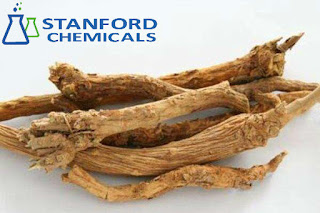Hyaluronic Acid – the Wound Healing Accelerator
Hyaluronic acid (Hyaluronan, HA) is a polysaccharide produced by the body and common to most species. It is found throughout the human body, including the skin, joints, eyes, and other organs and tissues. It is an important structural component of the so-called extracellular matrix in the skin. The skin contains about 50% of the amount of hyaluronic acid in the body. The role it plays here is critical - it maintains the structure and integrity of the skin, and participate actively in wound healing processes and tissue repair.
There is abundant evidence from clinical studies that the concentration of hyaluronic acid is elevated in the places of the body where a process of wound repair occurs. This discovery led scientists to experimentally test the idea if an exogenous, external to the body, application of HA intervention could be able to reduce the time of wound repair and improve the quality of the scar.
According to some reports published, the capacity of hyaluronic acid to retain water has a positive effect on wound healing by facilitating the transport of solutes and nutrients. It has been shown that HA accelerates greatly the healing process of chronic or acute wounds, either via complete healing or a significant reduction in wound size.
The favorable effects of its application have been documented for wounds caused by burns, venous insufficiency, diabetes, neuropathy insufficiency, and surgical removal of the upper skin layer (e.g., for tattoo removal). HA could be particularly useful to accelerate the healing process of diabetic foot ulcers and other difficult-to-heal chronic wounds. If untreated, they could take a very long time to heal and can be adversely affected by many factors, such as unrelieved pressure, infection, and concurrent underlying conditions. Even more important is the fact that this substance appears to be essential to the scarless wound healing.
Hyaluronic acid products have now been developed as a wound dressing and are increasingly being used in a variety of cosmetic and medical products. They are reported to be very well accepted and tolerated by patients and rated highly by medical professionals for their effect, ease of use, and treatment satisfaction.
For more information, please visit http://www.stanfordchem.com/
There is abundant evidence from clinical studies that the concentration of hyaluronic acid is elevated in the places of the body where a process of wound repair occurs. This discovery led scientists to experimentally test the idea if an exogenous, external to the body, application of HA intervention could be able to reduce the time of wound repair and improve the quality of the scar.
According to some reports published, the capacity of hyaluronic acid to retain water has a positive effect on wound healing by facilitating the transport of solutes and nutrients. It has been shown that HA accelerates greatly the healing process of chronic or acute wounds, either via complete healing or a significant reduction in wound size.
The favorable effects of its application have been documented for wounds caused by burns, venous insufficiency, diabetes, neuropathy insufficiency, and surgical removal of the upper skin layer (e.g., for tattoo removal). HA could be particularly useful to accelerate the healing process of diabetic foot ulcers and other difficult-to-heal chronic wounds. If untreated, they could take a very long time to heal and can be adversely affected by many factors, such as unrelieved pressure, infection, and concurrent underlying conditions. Even more important is the fact that this substance appears to be essential to the scarless wound healing.
Hyaluronic acid products have now been developed as a wound dressing and are increasingly being used in a variety of cosmetic and medical products. They are reported to be very well accepted and tolerated by patients and rated highly by medical professionals for their effect, ease of use, and treatment satisfaction.
For more information, please visit http://www.stanfordchem.com/






Comments
Post a Comment